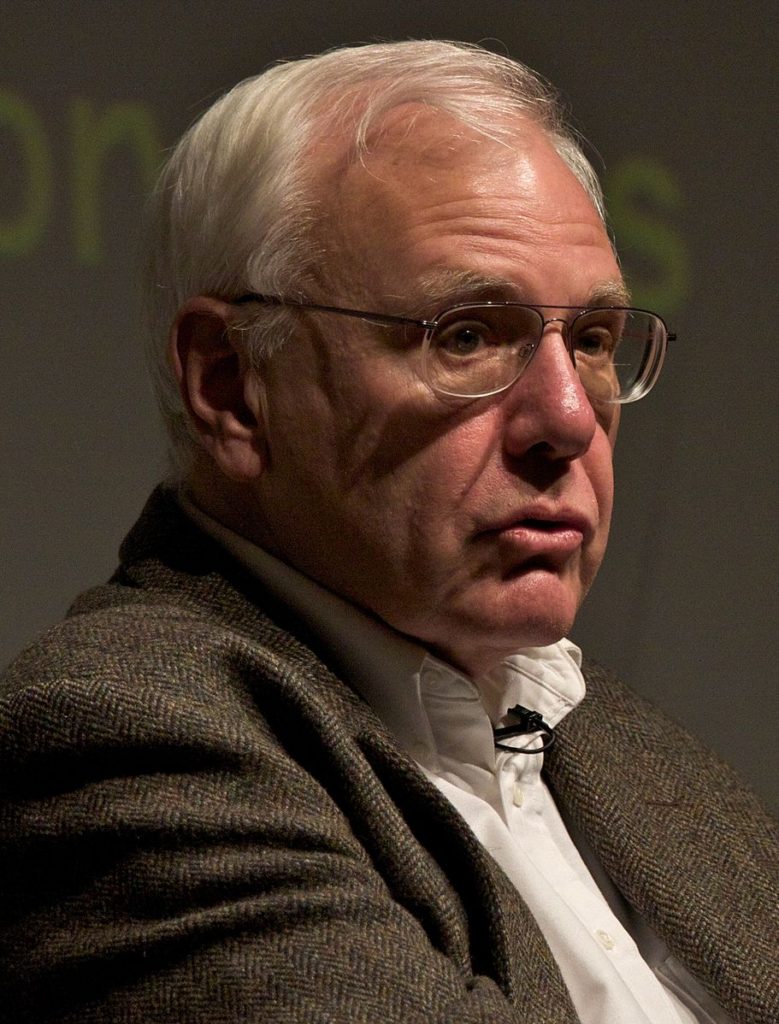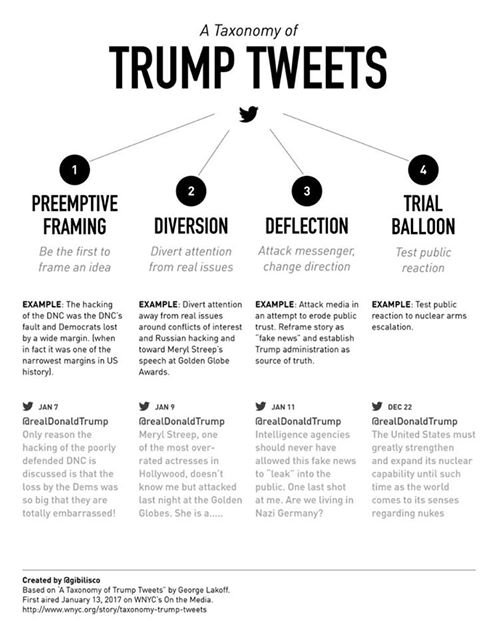I didn’t see the result coming. On the day, I had a deep sense of foreboding caused by taking the opinion polls seriously. A few days earlier I had noticed the one poll — by YouGov — which held out the possibility of a hung parliament. But I’d discounted it as an outlier. I had been deeply repelled by the May campaign: it seemed to me that she had come to embody the image of the “nasty party” — the term which she had famously used to describe the Conservatives at the beginning of the Cameron years. I spent the afternoon of Election Day at a symposium of political scientists reflecting on the ‘post-truth’ dimensions of our political discourse. And in the run-up to the closing of the polls on Thursday evening I was bracing myself for a substantial Tory victory. In this I was probably influenced by earlier experiences with the Brexit referendum and the election of Donald Trump (neither of which I anticipated). So I was staggered by the Exit Poll, and wondered if it could possibly be right. As it happened, it was spot on.
But then nobody else saw it coming either. And, as Rory Cellan-Jones observed in an astute tweet:

En passant, one of the many nice things about David Runciman’s Talking Politics podcast is the way the participants (all academic specialists in political theory and science) are willing to confess their own mistakes and wrong predictions. This is so refreshing compared with the anecdotal, evidence-free ramblings of professional political punditry.
Still, media shock at the outcome reminds me — again — of the shock of the Brexit result and Trump’s election. Ever since then, journalists have been solemnly declaring that they really ought to get out more — especially to those parts of the country where mushy peas are not avocado mousse. But did they really? And when they did, were they still just picking up conversations with citizens that they could fit into their own pre-determined narratives?
“Did we all fail to learn the lesson of Brexit?” asks Charlie Beckett.
“Are we in thrall to inadequate indicators such as opinion polls? Or has the Westminister ‘mainstream elite’ failed to get out of its London/Twitter bubble? Do we spend too much time covering the official campaign and not enough effort looking at issues and grass roots reality and sentiment? For example, too many ‘vox pops’ feel like illustrations for the journalist’s pre-existing narrative rather than genuine listening. Focus group polling by companies such as Britain Thinks were much more revelatory. Fox Hunting, for example, barely covered as a campaign issue, appears to have been a key factor in shifting voter perceptions.
The frivolity of the Conservative leadership has been astonishing, even in a political culture that is obsessed with party interests. Consider the history of the Brexit business. First of all Cameron foists a referendum on the country in order to get the Europhobes in his own party off his back. He assumes that he will effortlessly win the referendum (like he effortlessly made the transition from Eton to the leadership), doesn’t bother to run a convincing campaign, loses the vote and promptly resigns — having led the country off a precipice. There then follows the farce of a Tory ‘leadership’ contest which Theresa May (who was a Remainer all along) unexpectedly wins — but only because she was the only adult left standing. Being the dutiful and unimaginative woman that she is, she is unnerved by the xenophobic ravings of the Brexiteers about “the will of the people” and embarks on the road to a ‘hard’ Brexit with the zeal of a convert.
En route to that hard Brexit May declares that to call an election would be irresponsible, but shortly afterwards changes her mind, possibly because she believes the opinion polls which indicate that it will be no contest against a divided and chaotic Labour party. The opportunity to obtain the kind of majority that would ensure Tory rule for a generation — and give her the authority to overrule the Europhobes within her own party — proves irresistible to a supposedly principled politician. So this entire saga is a product of Tory inability to accept Britain’s role in the EU. This is part of a wider story about post-imperial delusions, but what it means at the moment is that ideological tensions within a particular party have inflicted serious damage on the whole UK community.
This unnecessary election she then screws up. She started with a slight but working majority, and wound up without a majority at all. But in order to stay in office she does a deal with the Democratic Unionist Party (DUP), a ragbag collection of religious fundamentalists, climate change deniers and anti-gay fanatics whose leader, Arlene Foster, is at the centre of a row that is making the devolved Parliament in Belfast inoperable. Suddenly, May begins to talk not about “the Conservative Party” but about “the Conservative and Unionist Party” [dog-whistle in italics]. The agreement with these hardliners having allegedly been arranged (though in fact it hadn’t), May goes to the Palace and announces that she has the resources needed to continue in office.
What’s breathtaking about this is the irresponsibility involved. The Prime Minister doesn’t seem to have considered the implications of this sordid alliance for the peace and wellbeing of Northern Ireland (which, remember, is still part of the United Kingdom). The whole basis for the process that led to the Good Friday Agreement was an undertaking that the British government (and its Irish counterpart) would be impartial towards both Sinn Féin and the Unionist parties. So the idea that a London government that is in hock to the DUP (now the only real voice of Ulster unionism) could be an impartial referee in the discussions/rows between the two sides is laughable. Except that, in the current standoff between the two sides in Belfast, this lapse into one-sidedness could turn out to be no laughing matter — as Jonathan Powell, who was Tony Blair’s Chief of Staff during the Good Friday negotiations has pointed out. Northern Ireland is the one place in the United Kingdom where careless talk does actually cost lives. And yet on the Andrew Marr show on BBC1 on Sunday morning, Defence Secretary Michael Fallon (‘Mogadon Mike’ as he is affectionately known in political circles) was actually heard to refer to “our friends the DUP”. With friends like that, who needs enemies?
But then this foolhardy alliance between Theresa May and the Ulster fundamentalists is par for the Tory course: like Cameron before her, she is putting the interests of the Conservative — and Unionist — party ahead of the interests not just of ‘stability’ and prosperity, but also of peace in Northern Ireland.
Throughout the campaign the right-wing (mostly tabloid) British press adhered to their usual game-plan: hysterical abuse directed at the Labour party and its supposedly shambolic leader, and torrents of misinformation and spin directed at their readers. But here’s the interesting thing: for the first time in recent history, this tabloid campaign didn’t work. At any rate, it did not dent the Labour campaign. Which leads one to wonder why.

UK tabloid front pages on Election Day.
One obvious explanation is that much of the Labour resurgence was driven by young voters and activists, and the one thing we know about young people is that they no longer read newsprint!
So maybe the game has changed? There’s a persistent rumour in media circles that when the Exit Poll revealed the likelihood of a hung parliament, Rupert Murdoch — who was watching the coverage in a News International newsroom — suddenly stormed out of the room and left the building. It’s almost too good to be true. But it’s plausible in one way: Murdoch has always understood media power and how to wield it. Could it be that he suddenly realised that the game really has changed — that this particular facet of his power was beginning to evaporate?
But power abhors a vacuum. If the tabloids are indeed losing the power to determine the agenda, as the older generations who still read them die off, what will replace them? The obvious answer is social media, which in this case means Facebook and YouTube. Many of us suspected that the alt-right tactics deployed in the US against Clinton and attempted (unsuccessfully) in France against Macron would be at work here. It’s not clear at the moment that they were. What we do know is that both parties (and possibly some sinister third parties, perhaps foreign) did spend lots of money on targeted advertising on Facebook; and it’s pretty clear that UK laws regulating campaign spending are now completely obsolete and need to be rethought.
Rules about fairness and balance really matter. The British press is effectively unregulated — except by constraints imposed by laws relating to libel, privacy, incitement etc. But broadcasters are regulated and are obliged in election campaigns to be fair and balanced in their coverage. This turned out to be very good for Jeremy Corbyn. Prior to the election, most voters’ impressions of him were a product of hysterically biased tabloid portrayals of him as a woolly-minded leftist and terrorist sympathiser. But once the election was called and the rules on fairness and balance kicked in, Corbyn appeared on television and voters were able to see him as he is – or at any rate as he wished to present himself — reasonable, calm, humorous, unstressed. The comparison with May’s increasingly harassed, nervy public appearances and her robotic recitation of the “strong and stable” mantra was dramatic. This contrast was reinforced by May’s refusal to participate in any leadership debates on television. She seemed — to use a phrase coined by Margaret Thatcher — “frit”.
It was in one sense a fake election campaign. There was no real discussion of the issue that was supposedly ‘central’ — Brexit. Both parties avoided the subject in their different ways. And both thereby perpetuated the fantasy that Britain is somehow in charge of this process. The reality is that the EU has decided what’s on offer. Only binary choices are available: in or out of the Single Market; in or out of the Customs Union. And no discussion of either before agreement on the size of the exit payment and a deal on the fate of EU migrants in the UK and of UK ex-pats in the EU. The notion that the UK can pick and choose between ‘hard’ and ‘soft’ Brexits is delusional.
Hard Brexit enthusiasts argued that since both main parties accepted the result of the referendum, then 82% of the electorate favours Brexit. But since the Labour position on leaving was, er, understated, and what evidence there is suggests that Labour voters were primarily interested in the NHS and ending austerity, it’s impossible to take that estimate seriously.
Labour didn’t ‘win’ the election. All that happened is that the party greatly exceeded the extremely low expectations people had for it at the beginning of the campaign. It remains 56 seats behind the faltering Tories. And it achieved that by crafting a fiendishly clever manifesto which relied on the ancient trick of bribing people with their own money: young people were enthused by the proposal to abolish tuition fees, for example; and older voters were reassured by the guarantees on pensions, paying for home care and the (credible) Labour commitment to the NHS. It was a manifesto that had something for everyone. But my hunch is that the Labour success was driven mostly by (i) dislike of May and her re-evocation of the Tories as the Nasty Party, (ii) her robotic incompetence as a campaigner, and (iii) a revolt against the Tory mantra that There Is No Alternative to continued austerity.
On the other hand, the campaign did undermine the political scientists’ axiomatic conviction that campaigns ultimately don’t affect the outcome of the vote. This may have been a freak result, but the remarkable switch in the fortunes of Labour and Conservative during the campaign implies that, this time at least, the campaign really mattered. Labour, remember, rose ten points during the campaign. And the Tories squandered a phenomenal lead in the polls.
Ultimately, what we’re left with is a colossal mess. There’s no good story here. Britain doesn’t have a stable government that commands support in a chronically divided country. Brexit promises to be an economic disaster for the country. The party-dominated, first-past-the-post political system makes cross-party cooperation and consensual politics impossible. And all of this has come about because we have had generations of political elites — in both parties — which drank the neoliberal, globalist, financialising KoolAid and generally (especially on the Tory side) privileged party advantage over the public interest.
In any rational system, David Cameron — who was the proximate author of this catastrophe — would be washing dishes for the next decade. Instead of which he is probably relaxing by a pool in Tuscany, sipping Chianti and dictating his memoirs. Sigh.




